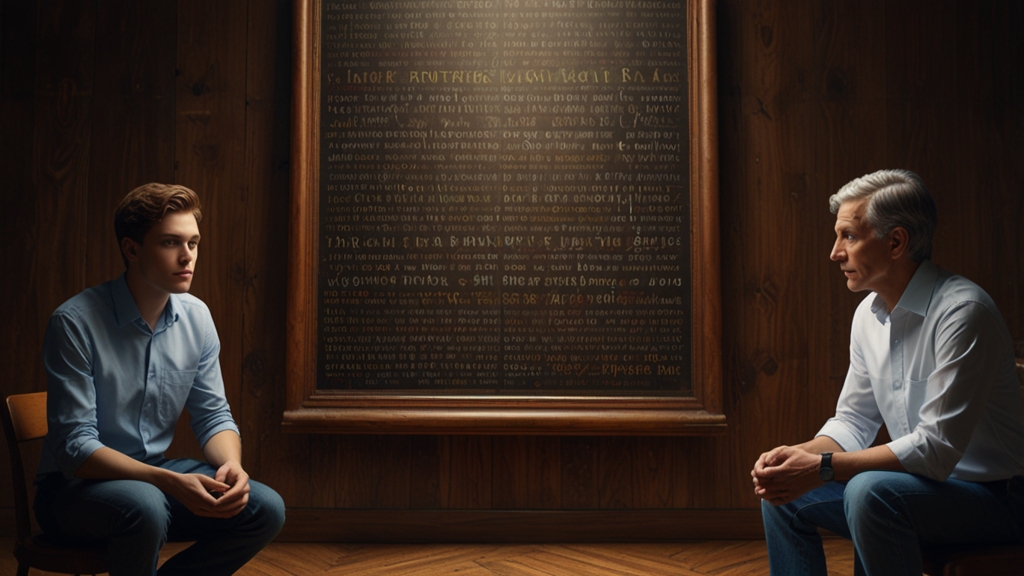Reimagining the Exodus Story: What If History Took a Different Turn?
The story of the Exodus, where Moses leads the Israelites out of Egyptian bondage, is one of the most defining narratives in both religious and cultural history. This saga of liberation has inspired countless generations. But what if we reimagined this epic event? What if history took a different turn? By speculating on alternative scenarios, we not only explore the delicate threads that make up our past but also gain a deeper understanding of the story's profound impact.
Moses: The Egyptian Prince Who Stayed
One intriguing scenario is the possibility of Moses never leaving his position as an Egyptian prince. Raised in Pharaoh's court with all the luxuries and power that entailed, what if Moses had chosen to remain within that life? Perhaps he might have become a reformer from within, advocating for the humane treatment of the Israelite slaves.
"The most unpredictable decisions often lead to opening paths previously thought impossible." - Unknown
In this alternate history, Moses might have worked incrementally to free the Israelites, gradually earning the support of other influential Egyptians. This internal movement could have led to a slower but possibly less turbulent liberation process. The Israelites' assimilation into Egyptian society might have been more comprehensive, creating a blended culture with shared innovations and traditions.
A Different Wilderness Journey
Another fascinating possibility is to consider the Exodus itself, but with different trials and tribulations. Imagine a path where the Israelites took a different route, avoiding the Red Sea but encountering other unique challenges. This journey would require a different set of miracles, signs, and wonders to keep the people's faith intact.
In this version, the narrative might have introduced new heroes, stories, and perhaps even different divine interventions. The lessons learned and the values emphasized could have varied, offering a fresh set of moral teachings for generations to come.
"Through adversity, a new kind of strength is found." - Ancient Proverb
The Sinai Covenant Rewritten
Yet another reimagining involves the Sinai Covenant itself. What if the commandments and laws given at Mount Sinai were different? Suppose they emphasized different aspects of justice, community, or spirituality. This would undoubtedly shape Jewish, Christian, and Islamic teachings in ways we can only begin to fathom.
If the emphasis had been on different virtues or societal structures, the cultural and religious evolution of millions might have taken alternate forms. Think of a world where the Ten Commandments placed a greater focus on environmental stewardship or communal responsibilities over individual obedience. The resulting societies might have prioritised different values, leading to vastly different historical outcomes.
"By changing the core tenets of belief, we can reshape the fabric of reality." - Theologian Hypothesis
The Promised Land: An Elusive Dream
Finally, consider a scenario where the Israelites never reached the Promised Land. What if, due to internal strife or external threats, the journey continued indefinitely? A nomadic lifestyle could have enforced a perpetual sense of searching and longing, which may have significantly affected the collective psyche and identity of the people.
This continuous wandering would have created a culture deeply rooted in adaptability and resilience but also marked by a perpetual sense of impermanence. The development of religious texts, rites, and rituals under these conditions would have perhaps emphasized different aspects of faith and human experience.
Conclusion: The Value of 'What If?'
Reimagining the Exodus story is more than an intellectual exercise; it's a way to understand the profound impact of this narrative on history and culture. By considering alternate scenarios, we explore the delicate balance of events and decisions that shape our world. This thought experiment invites us to delve deeper into the essence of human experience, reminding us of the power of stories to define and redefine who we are. What if, indeed, history had taken a different turn?











